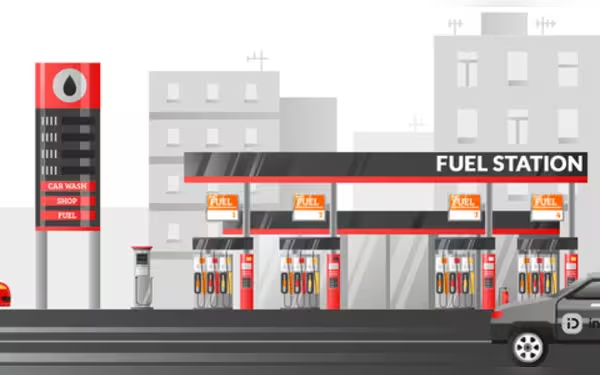Saturday, November 16, 2024 05:29 PM
Petroleum Levy Crisis: Pakistan Faces Revenue Shortfall
- Petrol prices drop to lowest in 21 months.
- Government revenue target faces Rs50 billion shortfall.
- Smuggling exacerbates fiscal challenges in Pakistan.
 Image Credits: brecorder
Image Credits: brecorderPakistan's petroleum levy faces a Rs50 billion shortfall as petrol prices drop, raising concerns over fiscal management and revenue generation.
The recent reduction in retail petroleum prices in Pakistan has sparked discussions across the nation. For the fourth consecutive fortnight, the Prime Minister has taken credit for this decline, which has brought motor gasoline prices down to their lowest level in 21 months. The international reference price for RON 92 grade petrol is currently at $74.91 per barrel, marking the lowest price in three years. This significant drop of Rs75 per liter from last year's peak is a welcome relief for the masses who have been grappling with soaring inflation for the past 30 months.
However, the question arises: should the Prime Minister truly take credit for this situation? While it is fair to acknowledge his role, it is essential to note that credit does not always imply a positive outcome. The government has managed to keep the Petroleum Levy (PL) steady at Rs60 per liter for over a year, resisting the urge to increase it. In dollar terms, petrol prices in Pakistan were lower back in May 2022, nearly two and a half years ago. Currently, petrol is priced at 89 cents per liter, the lowest since the early days of the PDM 1.0 government, which had previously implemented a controversial subsidy on petroleum.
Over the last 30 months, petrol prices have averaged exactly $1 per liter, despite significant fluctuations in oil prices, currency values, and taxes. With petrol now priced well under a dollar per liter, Pakistan's retail gasoline price is among the lowest in the region for major oil-importing countries. This situation is particularly critical as the government has set an ambitious revenue target of Rs1.29 trillion from petroleum consumption for FY25, a 47% increase from last year's collection of Rs869 billion.
As one quarter of FY25 has already passed, the projected revenue loss stands at approximately Rs45-50 billion, assuming sales patterns remain consistent. It is evident that the government is unlikely to meet its PL target by the end of FY25 for two primary reasons: it is already a quarter late in maximizing the PL, and sales have decreased by 10% compared to last year, which is surprising given that last year's sales were already at a multi-year low. This decline in sales is counterintuitive, especially considering the downward trend in retail prices.
To understand this revenue loss, one must look at the porous western borders of Pakistan. The revenue loss from smuggling is estimated to run into hundreds of billions of rupees annually, creating a fiscal hole comparable to the leakages in the electricity and gas sectors. It is highly likely that Pakistani authorities will resort to a mini-budget before or after the IMF program is finalized, as fiscal shortages have already become apparent.
The government's Rs50 billion electricity subsidies may be financed through cuts in the Public Sector Development Program (PSDP), but this will have long-term consequences. Similarly, Punjab's contentious subsidy of a similar amount will complicate budget balancing efforts. Clearly, there is a revenue problem, and the authorities' decision to delay addressing this issue is perplexing. This week would have been an ideal time to increase the PL without raising retail prices.
In contrast, taxes on electricity bills are treated differently, despite being more counterproductive than taxes on petroleum consumption. The IMF and the global community view this disparity with concern. The revenue lost will not be overlooked by the IMF and may lead to increased taxes in other areas, potentially resulting in an "extra surcharge" on electricity bills. If the government is hesitant to make necessary decisions due to a lack of political capital, it poses a significant challenge for the future.
While the reduction in petroleum prices offers temporary relief to the public, the underlying issues of revenue loss and fiscal management remain pressing concerns. The government must act decisively to address these challenges, as the current situation is not sustainable in the long run. The choices made today will undoubtedly impact the economic landscape of Pakistan in the future, and it is crucial for authorities to prioritize sound fiscal policies to ensure stability and growth.













